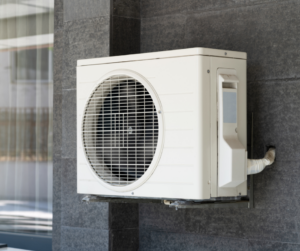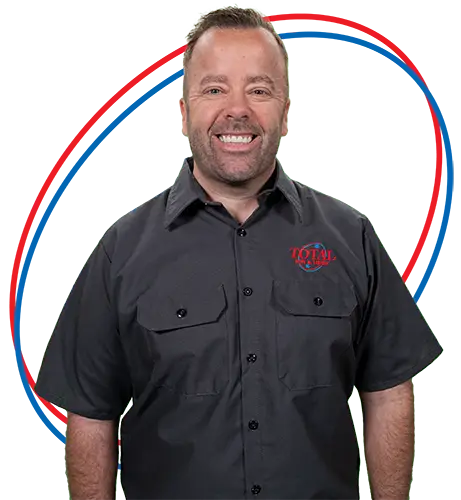Will a heat pump cool in 100 degree weather?
Summer in North Texas doesn’t play around. When that thermometer hits triple digits, and the pavement feels like it could fry an egg, your home becomes more than just a place to relax, it’s your shelter from the blaze.
So, here’s the million-dollar question, can a heat pump cool a house in 100 degree weather? Short answer? Yes, it can.
But like most things in life, it depends on a few key factors—your home’s insulation, your system’s condition, and whether your heat pump is sized and maintained right. At Total Air and Heat, we’ve helped families stay cool through some of the hottest days on record. Let’s walk through how heat pumps handle extreme heat and when it’s time to give us a ring.
How a Heat Pump Cools Your Home
Heat pumps are like air conditioners with a bonus feature. In summer, they pull heat from inside your house and push it outside. In winter, they reverse the process—pulling heat from outside air and bringing it indoors.
In cooling mode, they work just like a central air conditioner. The indoor unit absorbs heat from your home’s air using refrigerant. That refrigerant moves outside dumps the heat through the outdoor coil and loops back to do it again. In normal weather, this system runs smoothly and efficiently. But what about 100 degree weather?
Can a Heat Pump Handle 100 Degree Weather?
Yes. Modern heat pumps are built to perform even in extreme heat. Most systems rated for our climate zone can handle temperatures up to 105°F and keep the indoor temperature 20 degrees cooler—or more—than what’s outside.
But performance depends on several things:
System Sizing
If your heat pump is too small for your square footage, it will run constantly and still struggle to cool your space. Bigger isn’t always better, either—an oversized system short cycles and doesn’t remove humidity well. That means you’ll feel sticky, even if it’s technically “cool.”
Home Insulation
If your home leaks air like a screen door on a submarine, your heat pump will have to work harder than it should. Poor insulation, unsealed windows, and hot attic air make it tough for any system to keep up.
Filter and Coil Condition
A clogged filter or dirty coil reduces airflow and traps heat. The harder your system works, the faster it wears down. If it hasn’t had a Tip Top Tuneup recently, now’s the time.
Thermostat Settings
Set your thermostat to 68 in July, and your heat pump will chase that number all day without catching it. We recommend aiming for 74–76°F during peak heat and using fans to move air.
What We Do During a Heat Pump Service
If your heat pump is falling behind, don’t just sweat it out. We’ll come out and go through the system with a fine-tooth comb. Here’s what our techs check:
Step-by-Step Breakdown:
- System Inspection: We test the refrigerant pressure, check airflow, and inspect your blower motor and condenser coil.
- Thermostat Check: We test calibration and responsiveness.
- Air Filter Assessment: We’ll let you know if it’s dirty—or just plain wrong for your system.
- Electrical Testing: We check capacitors, relays, contactors, and all electrical wiring.
- Coil and Drain Cleaning: Dirty coils make cooling harder. We clean both indoor and outdoor units and flush the condensate drain.
- Airflow Measurement: We make sure your ducts aren’t blocking the cool air you’re paying for.
We don’t skip steps. That’s why our only way is all the way.
When to Call for Professional Help
You don’t need to be a technician to know something’s off. Here are signs it’s time to call us:
- Your house won’t drop below 80°F.
- System runs constantly without cooling down the space.
- Air from vents feels warm or barely cool.
- Your energy bills spike with no explanation.
- Humidity feels out of control indoors.
- Heat pump freezes up or shuts off.
- Odd noises—buzzing, grinding, rattling—from the outdoor unit.
You don’t have to wait until it quits completely. Call early, and we might catch a small issue before it turns into a full breakdown.
And if your system is more than 12 years old, we’ll talk about your long-term options. Sometimes, a new unit is the smarter move—and we’ll shoot straight with you either way.
Tips to Help Your Heat Pump in Extreme Heat
Here’s how to get the most out of your system when the mercury rises:
- Keep blinds and curtains closed during peak sunlight.
- Run ceiling fans counterclockwise to push cool air down.
- Avoid heat-generating activities (like cooking) during the hottest parts of the day.
- Change your filter monthly in summer.
- Keep the area around your outdoor unit clear of plants, debris, or furniture.
Schedule seasonal maintenance. A Tip Top Tuneup gives your system a fighting chance before summer hits full blast.
What Makes Heat Pumps Different from Traditional AC?
Heat pumps and air conditioners look and act similar in summer. The difference is in winter—where a heat pump can reverse operation to heat your home using outside air. That can save energy compared to gas furnaces in mild winters.
But in summer? They’re neck-and-neck. A modern heat pump can cool just as well as any central AC as long as it’s maintained and matched to your home’s needs.
FAQ
Can a heat pump cool my house as well as an air conditioner?
Yes. In summer, they work the same way. A heat pump pulls heat from inside and dumps it outside, just like an AC.
How long should my heat pump run in 100 degree weather?
It may run for longer stretches—or even non-stop during peak heat hours. That’s okay, as long as the indoor temperature stays steady and airflow feels strong.
Is my heat pump broken if it can’t keep the house below 75°F?
Not necessarily. It may just be undersized, dirty, or working against poor insulation. But it’s worth a check.
What temperature should I set my thermostat on extremely hot days?
We recommend 74–76°F. Lower than that, and your system may struggle. Use fans to help move air and feel cooler.
Should I replace my heat pump if it struggles in the heat?
It depends on the system’s age, condition, and whether repairs are stacking up. We’ll help you decide with real info—not pressure.
Stay Cool With Total Air and Heat
Your heat pump can stand up to 100 degree weather—but it needs your help. Give it clean filters, smart thermostat settings, and seasonal care, and it’ll reward you with cool comfort through the worst of summer.
If something feels off, don’t wait. We’re your trusted next-door neighbor for 65 years, and we’ve cooled homes through heat waves, brownouts, and scorched sidewalks. We do it with honesty, experience, and a team that takes pride in every fix.
We’re not comfortable until you are. Give us a call, and let’s keep the cool air flowing.

